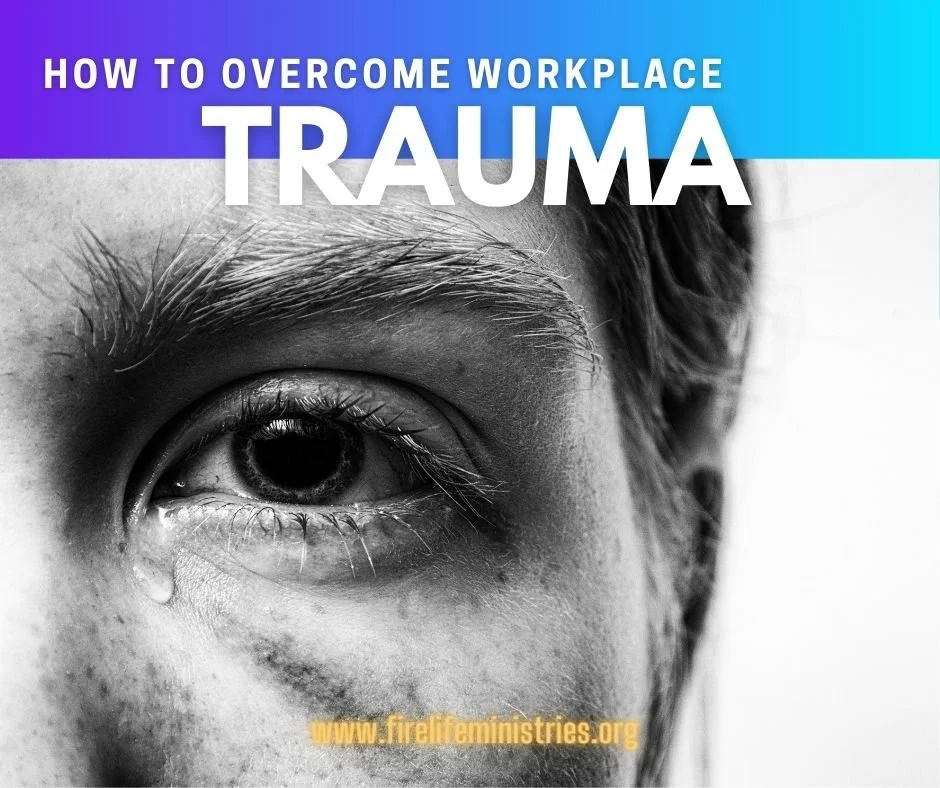The pandemic has forced many people to reassess their lives, including stepping away from toxic workplaces. Unfortunately, toxic workplaces leave a lasting impact so even in a new job and company, you may find yourself triggered by past experiences. Working in an unpleasant environment can be traumatic, and it can take time and effort to heal.
The pressure of protecting your reputation, securing your job, and appearing competent make triggers at work even tougher to handle. If you have no supportive coworkers who understand you are suffering from PTSD, you may feel isolated and alone.
Triggers are anything that might cause a person to recall a traumatic experience they’ve had.
PTSD is an anxiety disorder that may develop after exposure to a terrifying event or ordeal. Events that can trigger PTSD include violent personal assaults, natural or human-caused disasters, catastrophic accidents (including those at work) or military combat.
The following tips have helped others deal with difficult situations and cope with those triggers:
Be Aware Of Your Triggers
Identifying a trigger moment is the first step. It is important to understand that you are experiencing a personal and emotional reaction and that you should acknowledge and recognize it.
Feelings like anger, fear, sadness, or anxiety may accompany being triggered. Every person has different experiences with people and how they are treated, and we sometimes react emotionally to that. It is possible to control the situation more if you are able to identify what is happening to you.
Take It Slowly
Once you have identified the trigger, take the next few minutes/hours/days slowly. As your nervous system is already on high alert, it is crucial to take it slowly. Remind yourself that you're in a safer position now. Rest when you can, and calm your breathing. Take a deep breath through your nose, and imagine you are smelling something pleasant. Gently exhale through your mouth and imagine you are surrounded by fresh air.
Soften the space around you if you have the chance. You may want to dim the screen's brightness and volume, or find some soothing music.
Spend A Moment To Assess
We tend to react too quickly most of the time. You should slow down, and assess what is truly going on once you realize you are feeling triggered.
Then you can do some reflection. We are usually angry or upset if we believe the other person has done something wrong. The most important thing is to adjust the lens or frame that you are interpreting the situation through.
When we are not triggered it is easier to attribute unpleasant events to an accident or a justifiable reason when they occur. But when we are triggered our minds immediately go to the worst case sinereo we assume the worst intentions of another and can jump to conclusions.
When triggered, if your being micro managed it’s easy to assume that your boss is not happy with your output or doesn’t favor you. This is partly due to past experiences. It is possible you did not perform well on your previous job when you were micromanaged or there was favoritism. Being able to manage and recognise triggers will help you avoid assuming such a conclusion in a new situation and remembering that the past doesn’t equal the future.
Fix The Trigger
Lastly, you need to decide what you want to accomplish, and what you want to achieve. Consider how you can go about achieving your goal positively. The goal of the above example is to discuss that you work best with a different management style with your boss. It’s possible that your boss thought it was the best approach and the issue can easily be resolved by opening up.
It's easy to focus on an event that triggers us after we leave a situation that triggered us. Distract yourself by doing something enjoyable to avoid getting frustrated again.
Make a Space
Make some space for yourself however you can. It's great if you can take some time off or adjust your schedule. Try asking a coworker or a friend to cover a task for you while you relax in the bathroom, out back, in your car, in an empty room, anywhere you can feel some space. Maybe you can find a place after work too.
It's normal to want some quiet time after being triggered, since being triggered can be exhausting.
The effects of workplace trauma can be difficult to heal, but you can tell that you have been triggered when you feel an overwhelming emotional response. You can make a huge impact on your mood by knowing what will make you uncomfortable, or even irritated. Upon realizing what triggers you, you will be more prepared to handle being triggered.
Always know that you’re not alone. It’s normal to feel upset after being triggered. Take the time to recover gently and kindly. Be kind to yourself. While we can't completely avoid triggers, we can learn to take better care of ourselves after they occur.

